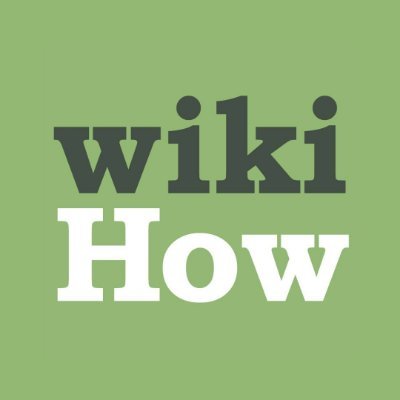Today we feature a guest post from freelance author Anna Medina. She contacted us recently with this article about Information Fluency and its importance in writing and researching.
Why Information Fluency is Necessary to Be Efficient Today
By Anna Medina
Information fluency is a skill that not many people know of.
And yet, it is by far one of the most important things you should know
to be able to succeed today professionally and even more so as a
researcher.
Information fluent individuals are able
to consume information in a more critical and efficient way which allows
them to become better learners, researchers, and professionals in their
respective fields. Hence, here’s everything you should know about
information fluency and how you can develop it in yourself.
What is information fluency?
To put it simply,
information fluency (or information literacy) is a skill that allows you
to evaluate and filter digital information before consuming it. In a
way, information fluency is actually a set of skills. Once you have
developed all of them, you become information fluent and can be more
efficient when working with all kinds of information.
When
it comes to the process itself, information fluency is applied at every
stage of your research. It helps you locate and identify useful
information, then retrieve and assess it, and finally use it to solve
problems. Moreover, information fluent individuals are better learners
are able to be more independent and critical while consuming
information.
In some cases, information fluency is separated from information literacy.
In this sense, information fluency is seen as a symbiosis of critical
thinking, information literacy, and computer skills. Nevertheless, the
essence of information fluency stays the same as it helps you achieve a
particular set of goals.
What are the biggest benefits of information fluency?
Natasha Rooney, an expert in paper writing, says, “I do a lot of research on a daily basis. Every review of essay writing services I
proofread has to be accurate and reliable. This is why I consider
information fluency one of the most important skills in my arsenal.
Without it, I wouldn’t be able to do my job right and to consume
information while actually filtering it rather than doing so
absent-mindedly.”
Indeed, information fluency is extremely useful for doing research. But besides that, there are some other benefits to having this skill, namely:
- Learning in class and training to increase qualifications
- Better decision-making and problem-solving capabilities
- More productivity and efficiency at work
What are the most important information fluency skills?
George McConaughey, an expert from an essay editing service reviews site,
explains, “Information fluency can’t really be simplified to a single
skill. It’s a set of different skills you need to develop to truly
understand how to work with information effectively. It’s valuable both
for researchers and for professionals in all kinds of fields.”
The most common information fluency skills include:
- Digital citizenship (safety and ethics when using information)
- Researching and locating information (offline and online)
- Critical thinking (at every stage of research)
- Navigating digital information online
- Evaluating sources (relevant, reliable, and credible)
- Summarizing, paraphrasing, and note-taking
- Creating and presenting information products
- Avoiding plagiarism, referencing, and citing
- Reflecting on the learning process
If
you build and develop these skills enough, you will be able to
determine your information needs and set appropriate goals. Then, you
will be able to find and evaluate information. Once you have the
information, you will be able to use it to solve problems. Lastly, you
will be able to analyze your learning process and correctly reference
the information you used.
How can I develop information fluency?
Whether you work for an essay writing service as
a writer or you are currently doing research as part of your Ph.D.,
there are several main ways for you to develop your information fluency
skills:- Higher Education:
Your first option is higher education of almost any kind. In most
higher education institutions such as universities and institutes, you
will be developing critical thinking skills, referencing and citing
skills, researching skills, and others. All of these will help you
eventually become more information fluent.
- Online Courses:
Another option for you is to enroll in online courses. In this case,
you will probably need to choose several different courses to help you
develop different skills relevant to information fluency. For example,
you can look for courses that focus on cybersecurity to learn more about
digital citizenship. At the same time, if your courses require you to
complete assignments (such as essays or presentations), you will
naturally develop skills relevant to information fluency.
- Self-Learning:
If you are on a tight budget or prefer to self-study, then
self-learning might be the best choice for you. In this case, you will
need to look for relevant offline and online resources to learn more
about information fluency. These resources can be anything from books to
articles to videos.
- Practice:
Practicing your information fluency skills is crucial for you to
perfect them. No matter which of the three routes you choose (higher
education, online courses, self-learning), you will definitely need to
practice as much as possible. Always consume information with a critical
approach rather than doing so passively.
Some sources you can use to get started with information fluency include:
- 21CIF:
One of the best websites to start from when learning about information
fluency. This is your definitive starting point to find out as much
about the topic as possible.
- Google Scholar:
Throughout your research, you will need a reliable tool to find as many
relevant sources as possible. Google Scholar is one of the most popular
choices when it comes to such tools.
- Encyclopedia Britannica:
While Wikipedia might have a lot of information on all kinds of topics,
it’s better to rely on more academic-based websites such as
Encyclopedia Britannica.
General tips to follow when developing your information fluency skill set:
- Use the 5As Strategy:
The 5As of information fluency are Ask, Acquire, Analyze, Apply, and
Assess. Ask meaningful questions that are relevant to the information
you want to find. Acquire relevant, reliable, and credible information
from offline and online sources. Analyze the information you have
acquired to filter and organize it. Apply the knowledge you have from
your information to answer the questions you had or to solve the problem
you were working on. Assess your research process and decide what could
have been done more efficiently.
- Read Relevant Literature:
Practicing your information fluency skills is important, but you can’t
do it right unless you have seen previous examples of it. This is why
reading relevant literature will be so useful. The academic texts you
find will have reference lists that you can check to better understand
how citing and referencing works. Likewise, the wording the authors use
can be a great example for you to understand how summarizing and
paraphrasing can be done right.
- Never Stop Learning:
Just like with any other skill, improving your information fluency
requires you to engage in a continuous learning process. Once you have
mastered the basics of information fluency, you will need to move on to
more advanced skills while working to improve the level of your current
skills.
Final Thoughts
All in all, information fluency is definitely a much-needed skill set
for many researchers and professionals. By developing the skills
associated with information fluency, you will be able to consume
information more critically and efficiently. Use the tips in this
article to help you get started and begin working on your own
information fluency.
About the Author
Anna
Medina has enjoyed writing
ever since her university years. Upon graduating from the Interpreters
Department, she realized that translation was not as interesting as
freelance writing. She practices her skills writing on a variety of
topics.
Source: https://21cif.com/fullcircle/winter2022/feature2
































